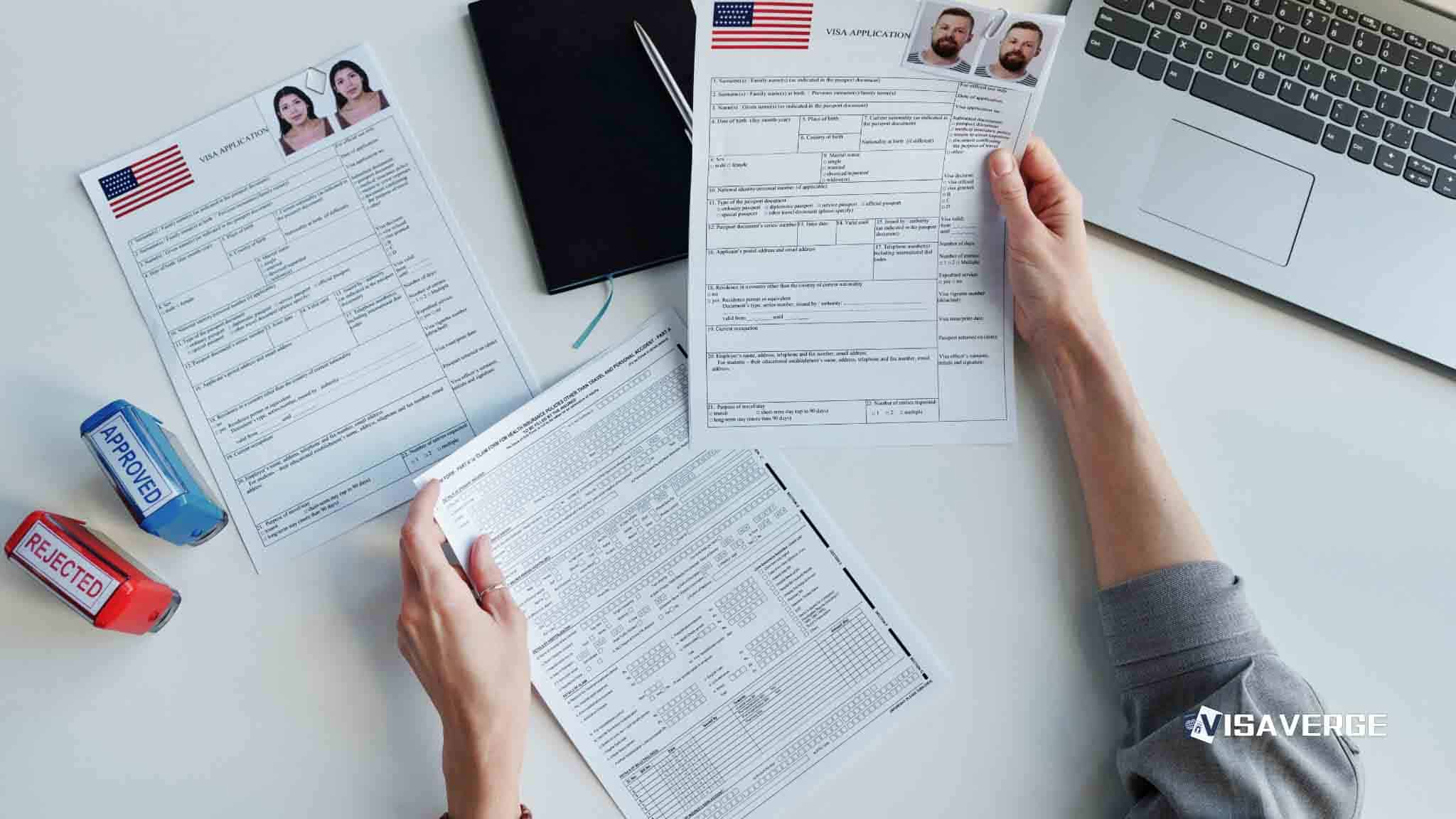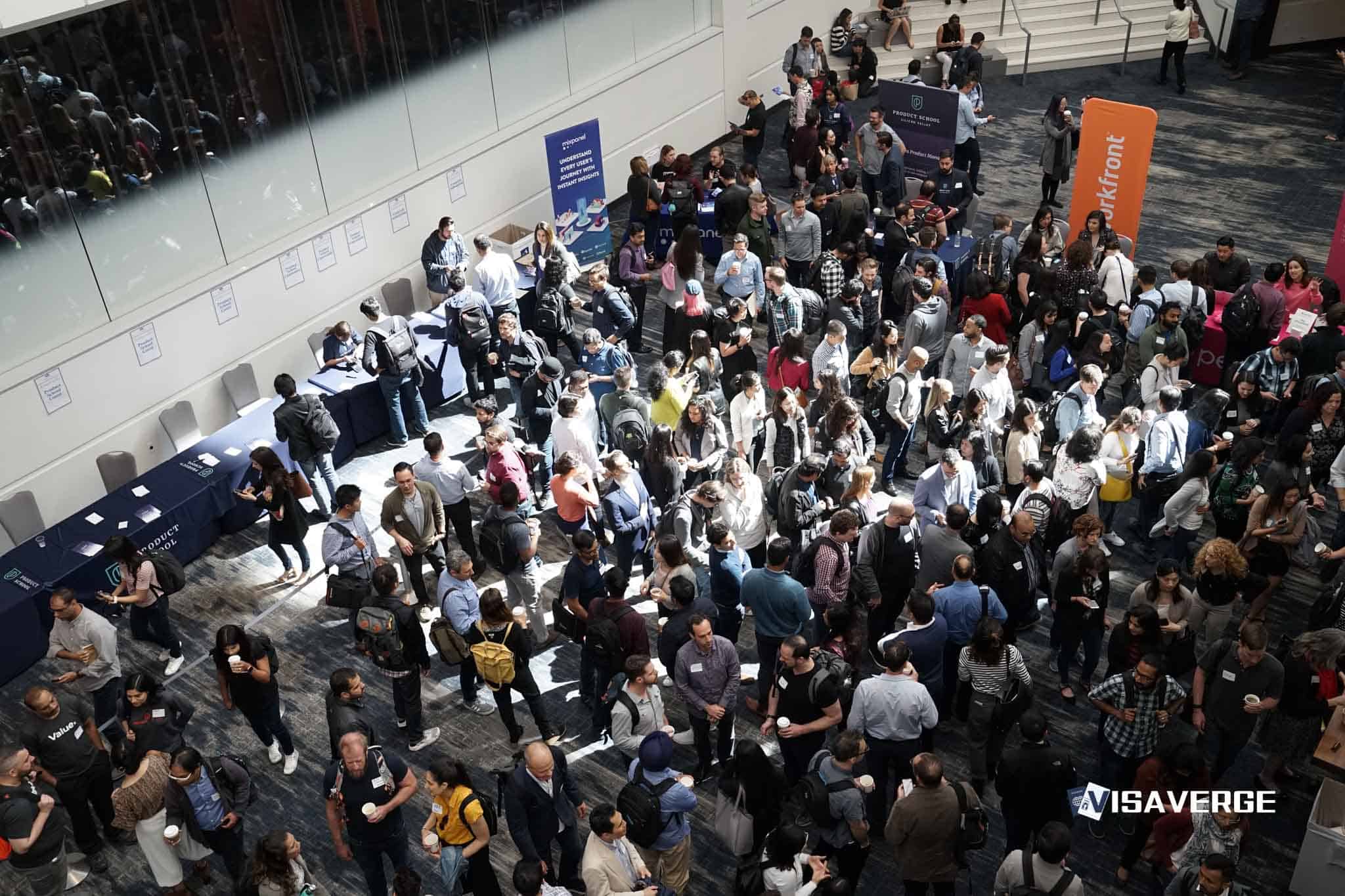(UNITED STATES) The U.S. State Department has revoked more than 6,000 student visas in 2025, part of a sweeping enforcement drive that officials say targets visa overstays and law violations, including assault, DUIs, burglary, and alleged support for terrorism. Overall, roughly 40,000 visas have been revoked so far in 2025, compared with about 16,000 in prior years, reflecting a sharp escalation in enforcement priorities under President Trump’s immigration and security policies, according to officials familiar with the process.
State Department data reviewed by senior officials indicates the student visa actions are concentrated in two groups: those who overstayed their visas past authorized dates, and those accused of crimes. About 4,000 revocations were tied to law violations, with approximately 800 students facing assault-related charges. In statements describing the effort, officials emphasized that local arrests and court outcomes often trigger visa reviews, even if a criminal case is still pending.

A second category involves cases flagged as support for terrorism, described by officials as including activity at protests, notably pro-Palestinian demonstrations, and alleged anti‑Semitic conduct. While this approach has drawn criticism from civil liberties advocates and campus groups, the State Department says the decisions fall within long-standing security authorities and are focused on threats to public safety and foreign policy interests.
Secretary of State Marco Rubio confirmed the review and revocation campaign and said the department is prioritizing cases tied to crime or terrorism concerns. A senior State Department official added that every visa that was revoked fell into “either criminal conduct or support for terrorism,” underscoring the administration’s national security focus and the message it intends to send to schools and foreign students.
Legal and Policy Basis
The legal framework for these actions rests on broad discretionary powers that courts have mostly kept off-limits to challenge.
- In Bouarfa v. Mayorkas (2024), the Supreme Court affirmed that visa revocations lie within executive discretion and are largely shielded from judicial review. That ruling strengthened the government’s position that it can revoke visas without extensive court oversight, including in student visa cases.
- Officials also cite INA 237(a)(4)(C), which allows action when a foreign national’s presence may cause “potentially serious adverse foreign policy consequences.” The department uses this provision to move quickly when it believes a person’s activities pose risks beyond normal immigration violations, including cases labeled as support for terrorism.
Recent policy shifts and additional screening
- On June 4, 2025, President Trump signed a proclamation restricting entry from 19 countries identified as security risks. This affects visa issuance and post-issuance enforcement.
- On June 18, 2025, the State Department expanded vetting for nonimmigrant applicants (including F-1 and J-1 students), adding social media reviews and tighter background checks.
- The Department of Homeland Security began considering social media activity in visa adjudications in April 2025, with applicants told to make profiles public for review.
- Visa interviews for F-1 and J-1 applicants resumed on June 20, 2025, with the new vetting protocols active. Consular officers now apply enhanced screening and enforcement guidance meant to prevent entry by people who present public safety or foreign policy concerns.
- The department’s handbook, 9 FAM 403.11, outlines procedures for revocation and coordination with other agencies, including “prudential” revocations based on new information.
Impact on Students and Schools
Students whose visas are revoked can be placed in removal proceedings. Some may remain lawfully in the country for a short period if their SEVIS records are not immediately terminated, creating a gap between revocation and school action.
- Officials note that terminating SEVIS without legal cause is not allowed, but in practice the line can be unclear.
- This uncertainty affects travel plans, work eligibility, and students’ place in academic programs.
Free speech and campus climate
Free speech concerns are central to the debate. University leaders and student advocates say including protest activity in the pool of cases flagged for support for terrorism could chill expression on campus.
- International students may avoid peaceful demonstrations, public statements, or online posts for fear of visa scrutiny and revocation under broad security standards.
- International offices report growing anxiety among incoming and continuing students.
Practical institutional impacts
Universities expect:
- Higher rates of deferred starts and last-minute cancellations if visa approvals slow or revocations increase mid-semester.
- Loss of teaching assistants and research assistants who support labs and core classes, particularly in STEM fields.
- Increased demand for emergency support for students who lose status or face hearings.
Practical steps recommended for students:
- Keep academic records current.
- Check SEVIS status regularly.
- Speak with campus advisers before travel or public events.
- Review official guidance on eligibility and rules for F-1 and J-1 categories at the State Department’s student visa page: https://travel.state.gov/content/travel/en/us-visas/study/student-visa.html.
Schools say they will continue to brief students on conduct policies, police contact, and what to do if questioned by authorities.
Analysis, Trends, and Outlook
VisaVerge.com reports that the scale of 2025 revocations marks a significant break from recent years and could reshape how international students approach campus life and travel planning.
- According to VisaVerge.com analysis, the mix of criminal allegations and policy-based flags, combined with social media vetting, has created a more fragile status for student visas—even for those with strong academic standing and clean records.
- Officials say the trend will continue as the State Department and DHS expand vetting and data-sharing, likely increasing the number of cases flagged for review.
- Legal groups and advocacy organizations are expected to press for:
- Clearer standards,
- Faster notice to students,
- Better coordination with schools, particularly where SEVIS records remain active despite visa revocation.
The June 4 proclamation affecting 19 countries adds another layer for consular posts. For applicants from those countries, interviews may involve:
- More document checks,
- More questions about affiliations,
- Detailed social media review,
- Longer wait times and uncertainty about returning to the U.S. in time for class start dates.
Important takeaways:
– The administration maintains the approach is necessary to address real risks: over 6,000 student visas revoked and about 40,000 total revocations in 2025.
– University leaders request guardrails so peaceful speech and research collaboration are not treated as red flags and so students are not pushed out by opaque standards.
With the Supreme Court’s decision in Bouarfa v. Mayorkas (2024) reinforcing broad executive discretion, policy debates may move from courts to Congress and state legislatures. Lawmakers could seek clearer definitions around security-based revocations and protest-related conduct as the fall term approaches and campuses prepare for uneven arrivals, more late starts, and expanded guidance on online conduct.
Frequently Asked Questions
This Article in a Nutshell
The State Department revoked over 6,000 student visas in 2025, citing overstays, crimes, and alleged support for terrorism. Expanded vetting—social media reviews, resumed interviews, and INA 237(a)(4)(C) authority—heightens uncertainty for students, disrupts campuses, and raises free-speech and procedural fairness concerns ahead of fall enrollment.













